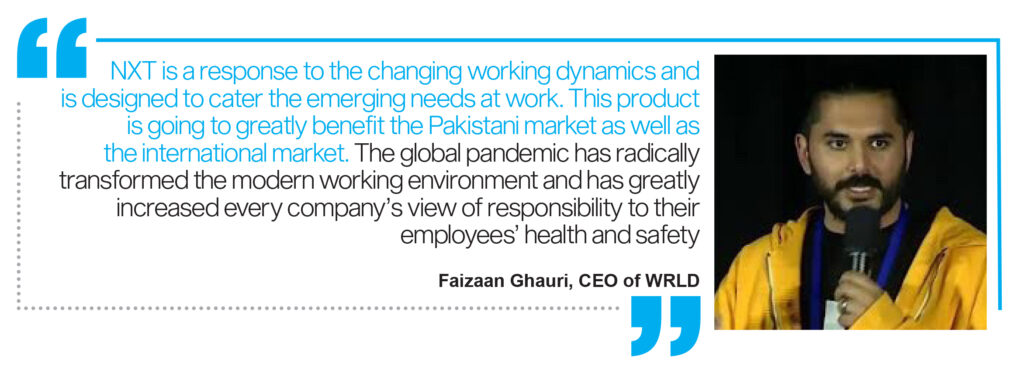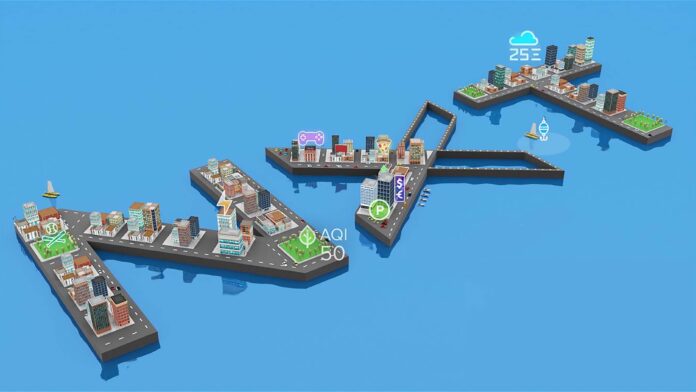As the coronavirus pandemic has progressed, a lot of professionals have had to get used to working from home. Some people hate it because of the lack of working space, human communication, and work spilling into the domestic sphere. Others have enjoyed the process because of the increased productivity and comfort that comes with it. Whatever side you are on this debate, however, one thing is certain – the nature of work has changed.
And not just because some things have gone digital, no. The realm of the digital has extended well beyond video conferencing and e-commerce. Covid-19 has forced us to see doctors online and to go to school remotely, all kinds of businesses have adapted to this reality. Hollywood premieres big budget films on streaming platforms, gyms are putting out YouTube videos, and previously dine-in only restaurants have started home delivery services.
Covid-19 has changed the reality of our lives. It has left disastrous and long-lasting effects on the global economy. Certainly, during these times of distress, innovation is key. If we look at the history of mankind, it is during the hard times that humans have always evolved and innovated the most. Due to Covid, we have seen large factories shut down, big businesses go bankrupt because they were not able to cope with the reduced economic activity taking place all over the world.
Workplaces are a shadow of their former selves, with some companies implementing a WFH (work from home) culture at their offices, while others have opted to create team and have anywhere from 30% to 50% of their work force in the office at any given time in order to cope with the health hazards posed by the coronavirus pandemic.
During a time when businesses are not able to run at full tilt and productivity has decreased, companies are turning towards IT based solutions in order to increase productivity and efficiency. Pakistan has been especially slow to adapt to newer, better solutions in the form of IT when compared to the rest of the world. If we look at other countries, IT based solutions are being installed in order to not just increase efficiency and productivity, but also increase employee safety, provide better tracking of tasks, and bring the company further forward into the future.

Not only that, but there is a dearth of tools that are required to ensure a smooth and resourceful implementation of IT based solutions at work places. One such tool has been created by one of Pakistan’s largest IT companies, Netsol Inc.
What’s the product?
Netsol has launched NXT, a Covid-aware smart workplace solution. The company claims that it helps ensure standard operating procedures for employees to safely return to the office and offers virtual interaction and seamless communication for those who continue to work remotely.
The platform, brainchild of NXT’s Faizaan Ghauri, harnesses the potential of 3D gaming quality maps and the internet of things (IoT) technology, to create a digital twin of the real world. This is utilised to connect and engage employees with their workplace while also ensuring they follow strict Covid safety protocols such as contact tracing, wellness checks and social distancing while in the office. According to the company, the goal of NXT is to provide a global solution from Pakistan to counter the impact that Covid-19 has had on the local market.
The platform also provides online meeting room bookings, workspace allocations, real time productivity management systems, turn by turn mapping for navigation and interior wayfinding, security systems, real-time video feed of office space, fault reporting, customer service management and much more. The NXT platform allows users to choose the feature set they want, which best suits their requirements thus providing the needful information to its users at all times.
IT solutions can be installed on a need-by-need basis, opting out for only the feature-set required is what makes them so efficient to use and NXT is no different. As per company, due to this very reason, it can cater to a wide variety of industries such as telecommunications, schools, universities, the manufacturing sector, entire safe city projects and many others.
Such solutions are necessary in today’s day and age, which allow businesses to increase their economies of scale and effectively care for the health and safety of their employees. It allows them an efficient use of office space, increased productivity across the work force and Covid standard operating procedures following intelligent solutions.
In the case of Covid safety regulations, it can provide a real-time Covid-radius display, ensuring six-foot distances are being maintained. It can integrate with IoT sensors for occupancy, footfall management, temperature, air quality and many more to provide visualized data which is remotely accessible. It provides office and work from home check in capabilities in its mobile application.
“NXT is a response to the changing working dynamics and is designed to cater the emerging needs at work. I am extremely proud to introduce a solution made in Pakistan to help combat the world-wide crisis we are facing and present it globally,” says Faizaan Ghauri, WRLD’s Chief Executive Officer and NXT’s Product Visionary. “This product is going to greatly benefit the Pakistani market as well as the international market. The global pandemic has radically transformed the modern working environment and has greatly increased every company’s view of responsibility to their employees’ health and safety,”
“NETSOL’s collaboration with WRLD to transition our global operations to a work-from-home hybridization helped form NXT. We believe its applications will be beneficial to any organization looking to meet today’s unique challenges both during and post-pandemic. NXT has enabled our company to establish and enforce robust standard operating procedures (SOPs) to bring employees back to work in an efficient, transparent and socially distant manner, while simultaneously keeping in contact with employees’ productivity on and off-campus.”
Will it be effective once Covid-19 is over?
The problem is, NXT has been geared to provide solutions in a Covid-19 affected world. While precautions will be necessary in the visible future, vaccines are already rolling out and countries are on the brink of achieving herd immunity. So what will NXT do in a couple of years when the coronavirus is possibly gone and people are ready to get back to life as usual? Well, the idea is that it keeps going even after.
The company claims that such solutions are not just useful during COVID, and that the scalability of such IT solutions allow for adding more features to them, which in turn allow them to be utilised for other purposes as well. finance, government, human resource, inventory checks, manufacturing lines and other departments can take advantage of such platforms.
They added that in the case of schools and universities such solutions provide a safer studying environment for students. Not only do they allow senior management to monitor if COVID SoP’s are being followed, but it will also allow them to keep a record of achievements, goals, gradings and much more. They allow for a more intricate record on every student, thus ensuring goals can be set individually for students according to their requirements. Performance based data on students and teachers alike, will be just a phone tap away, ensuring a much higher efficiency than possible before.
Although the company claims that such IT based solutions will be effective even after the pandemic is over but in reality it is less likely to be as effective once this pandemic is over. So, will it be a win-win situation for companies to opt for such IT based solutions? Well, it is a tricky question and only time could tell this.
The pandemic shows us that the technological revolution already started by the rise of smartphones and software is further along than we thought. The pandemic served as a kind of forced mass product testing for digital life and for the most part our technological tools passed muster when necessity dictated that we must live digitally we found out that we could.
It is unlikely that we will ever go back to the way things were that has led to fears of a post pandemic future in which people empty out of cities, work is increasingly remote and human interactions becomes all too infrequent. But this too is unlikely.
Technology has many benefits, but we also lose a lot of the texture of human life when we conduct businesses via zoom and other such platforms. It’s useful in a crisis and allows us to work well with people we already know, in situations we are familiar, but new people, new ideas, accidental discoveries are all much more difficult.
On digital platforms we spend social capital rather than building it up. Gone are the spontaneous interactions between colleagues that generate goodwill, and morale, and good ideas. Gone are the accidental meetings between students, professors and peers that are at the heart of learning.
We will end up with some hybrid model that uses the convenience of technology but also values the power of actual human contact. We all crave that contact and while the pandemic might have deepened our understanding of this fact it actually is an ancient truth. But still it is refreshing to see such IT based solutions coming from Pakistan, which allow us to evolve during such difficult times and come out unscathed.









